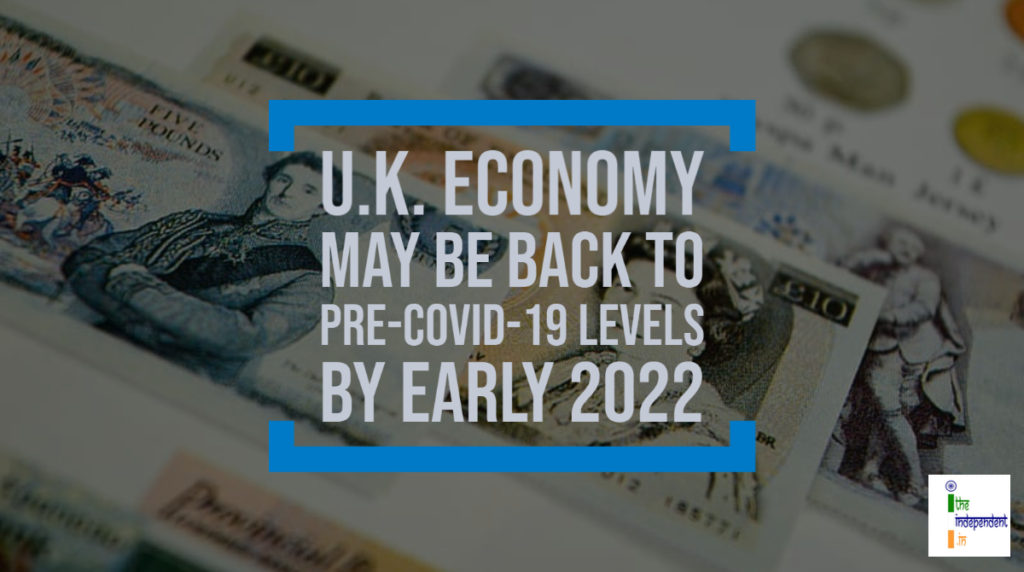
The Bank of England (BoE) today announced to pump £ 150 billion (U.S. $ 195 billion) into the United Kingdom (U.K.) economy, under its Quantitative Easing Programme, taking the total stimulus to £ 485 billion.
The infusion coincides with the commencement of second national lockdown in England, which will last till December 2, 2020. It is to be noted that U.K. has a total of 10,99,059 COVID-19 cases and there have been 47,742 casualties. In the past 24 hours, it reported 25,177 fresh cases and 492 casualties.
The Governor of BoE – Andrew Bailey has said that the bank is ready to pump more stimulus into Britain’s economy if the outlook for inflation weakens.
Speaking on the occasion, Bailey said, “The committee stands ready to take whatever additional action is necessary to achieve its remit.”
The BoE has also forecasted U.K. economy going into double-dip recession, during the last quarter of the year. This is majorly due to second lockdown, which will add to the woes of already struggling economy. Besides, the bank would keep the interest rates unchanged at 0.1% but would increase its purchases of U.K. Government bonds to £ 875 billion (U.S. $ 1.1 trillion).
Taking it to twitter, the official twitter handle of BoE tweeted, “The Monetary Policy Committee voted unanimously to maintain #BankRate at 0.1% and to inject an additional £150bn into the economy through quantitative easing.”
Another major factor for pushing the U.K. economy into recession is the uncertainty over the post-Brexit trade deal with European Union. The transition period of U.K. leaving E.U. ends on December 31, 2020 and the chances of finalising a deal look difficult. Without a deal, companies in U.K. will be subject to hefty tariffs, quotas and transportation barriers across borders, which will make it difficult for the industries to cope.
The BoE predicts U.K.’s economy to shrink 2% during the fourth quarter. Overall, for the year 2020, the U.K. would shrink by 11%. This is more than the earlier estimate of 9.5%, which it had predicted in March 2020.
A statement from BoE read, “It depends on the evolution of the pandemic and measures taken to protect public health, as well as the nature of, and transition to, the new trading arrangements between the European Union and the United Kingdom.”

As per BoE, the U.K. economy will be back to pre-COVID-19 status in the first quarter of 2022. It had previously predicted the economy to recover by the end of 2021.
Unemployment was set to peak 7.75% in the second quarter of next year, much higher than its most recent reading of 4.5%. The Gross Domestic Product (GDP) was likely to grow by 7.25% in 2021, weaker than a previous forecast of 9%. However, the 2-year inflation forecast remained unchanged at 2%.
Referring to uncertainty looming over the post-Brexit trade deal, the statement read, “There is uncertainty around the extent to which the initial adjustment to new trading arrangements with the EU will affect activity. The MPC’s projections are also conditioned on the assumption that cross-border trade falls temporarily in the first half of 2021 as businesses adjust to the new trading arrangements with the EU.”
Besides, a survey of business activity published on Wednesday, November 4, 2020 showed that British employers cut their hiring for permanent positions for the first time in 3 months in October 2020 and relied increasingly on temporary staff. The increase in private sector activity in October 2020 was the weakest since June 2020, with new orders declining and employment dropping.







